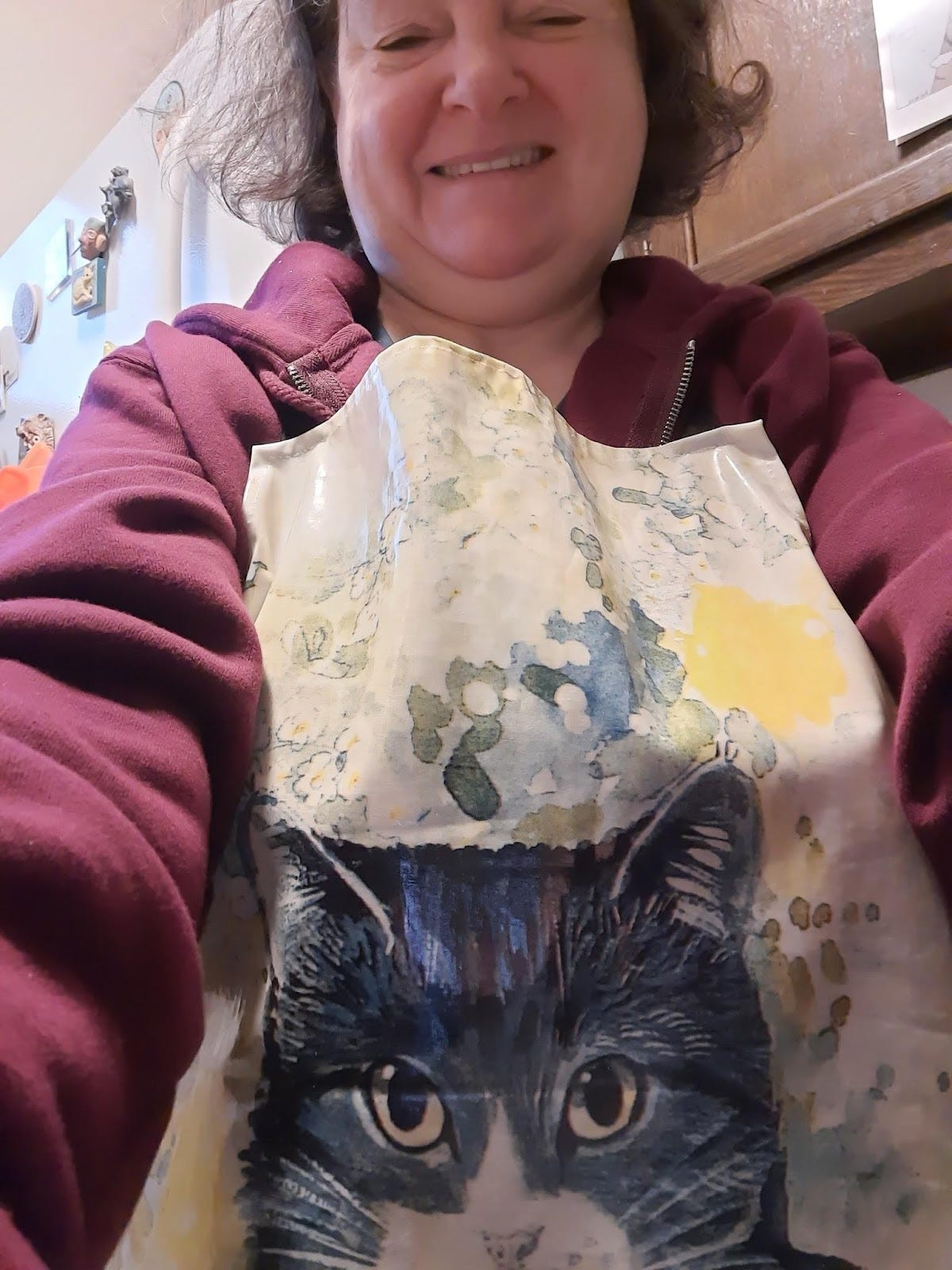
I impatiently put sourdough pancake batter in my pan, too early. The pan isn’t hot enough and the first and the second pancakes fail as usual. I worry my improvised recipe is failing. The third, fourth and fifth pancakes are fine. Even great. Eventually, after 4-5 pancakes, I remember the signs telling me the pancakes are ready to be flipped. I don’t need to count any more.
Just before Thanksgiving, I realized the first draft of my book was complete; every section has words.
Woo hoo! Dancing in the streets.
This is the book I started confidently at the beginning of 2020, thinking it would take me only a year. Three years later and I finally have a draft. A draft I am desperately trying not to apologize for, and since I don’t want to tempt the Gremlins or the Gods, I want to point out is full of mistakes. I am proud and amazed by this draft.
To take a break from formally writing about how food science and food systems interact, I am spending December reading and writing about what I read. This writing is personal. I am not taking notes, copying entire sections that I find important, or writing a precis to use in my book. I am writing about how I responded to the text; book, report, or article.
In the past week, I’ve read more than I expected and my responses are opinionated.
I started with Small Fires: An Epic in the Kitchen by Rebecca May Johnson which Alicia Kennedy recommended a few months ago. This book probably was the impetus to the idea of writing about my reading. While this book is short, it is packed full of critical thinking, emotions, and responses to cooking.
Simply, the book discusses how we disrespect recipes and cooking considering them unimportant because they are women’s work. By comparing a tomato sauce recipe with the Odyssey, which she is studying as a grad student. Both, she notes, have a murky, mysterious history with the true author unknown. We must translate both the Odyssey and the recipe for us to understand them.
I am fascinated about the idea of translating a recipe because we must first create the dish before we write it to share. The conversion of ingredients to food is the first translation. Sometimes we translate recipes directly by showing the next person. They might never be written.
The writing of the recipe is a translation of the actions in the kitchen. That is the second translation. Once the recipe exists in a word form, there are many next translations as we all cook the recipe. The ingredients we have, the tools we use, the mood we are in, the weather, the knowledge of cooking we have prior to making this recipe alter our translations. Even, as the author notes, wearing the apron and tying the apron strings is an act of cooking, a step in translation.
Until reading this book, unless I knew I was going to get really messy, I rarely wore an apron in my kitchen. I had a uniform for my lab, a lab coat and safety glasses, without which I would feel under dressed for the work I did in my lab. I didn’t want to feel constrained at home in my kitchen, my safe place. However, last week I started wearing my apron, tying my apron strings as my first act of cooking.
It has changed my relationship with cooking.
I am more aware of my actions while cooking and my act of translation. A lot of my cooking is improvisational - I don’t use a written recipe. Mostly I have been improvising sour dough recipes, especially flatbreads and this weekend I attempted sour dough pancakes. I really wanted English pancakes which are nearer to French crepes than American pancakes. Well made English pancakes are deceptive; lacy, fragile and robust. Ha! They are resilient.
It turns out that I know how to make American pancakes better than English ones. I made some very good pancakes, that were light and airy and fragile. Their fragility was because they didn’t have enough structure.
My food chemistry mind wants to say I had too much liquid; my flour to liquid ratio was wrong. That by attempting to make crepes, I ended up with neither American nor English pancakes. Quite a statement for my immigrant self, as often I feel neither American nor English.
Even though the pancakes weren’t quite what I wanted, they were delicious.
To make English pancakes, I need to get back to first principles and translate a trusted recipe so I feel English pancakes in my body. Once I have enough understanding of the written recipe, I will use my sour dough starter to make them.
I love playing in the kitchen even when success isn’t guaranteed; I learn something.
I encourage you, after this busy holiday season, to play a little in the kitchen. Tie your apron strings and feel the recipes as you translate them.
Let me know what you make.




VERY CUTE PIC AND VERY CUTE APRON! Also HUGE HUGE HUGE congrats, the draft is a big deal. Enjoy your enjoying in December xoxo